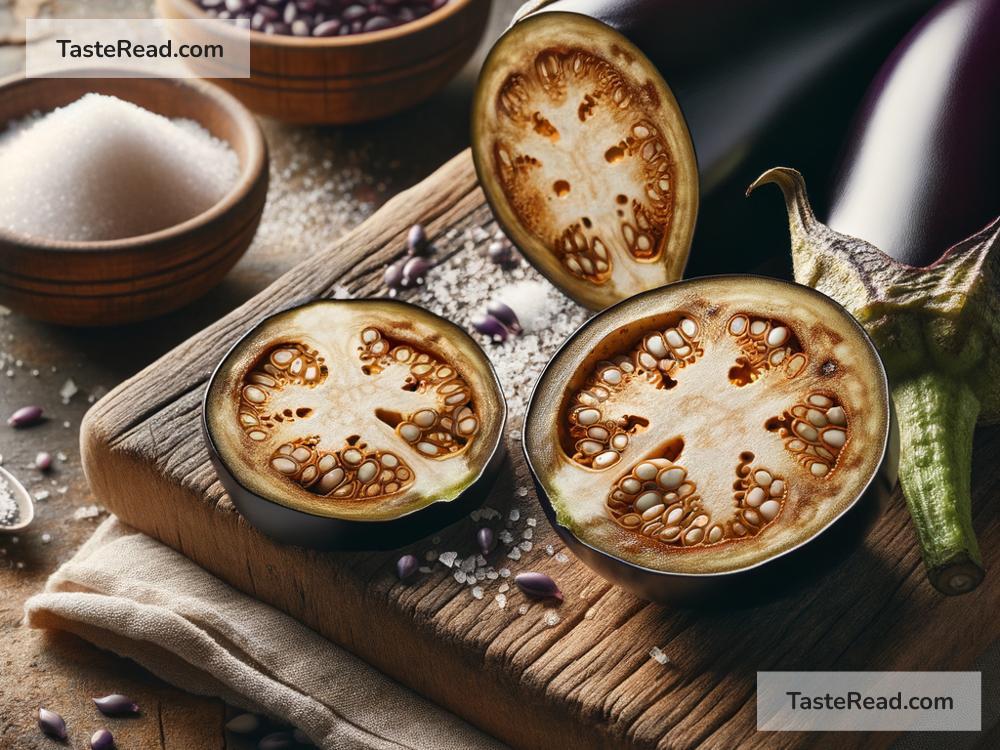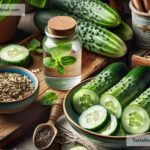The Truth About Eggplant Seeds and Their Bitterness
Eggplants, with their glossy purple (sometimes white or green!) skin, are beloved in many cuisines worldwide. From Italian eggplant Parmesan to Middle Eastern baba ghanoush, this versatile vegetable can be grilled, roasted, baked, or blended into a creamy dip. But if you’ve ever cooked eggplant and noticed a bitter taste, you might have wondered: are eggplant seeds to blame? Today, we’ll explore the truth about eggplant seeds and their connection to bitterness—but don’t worry, it’s not as complicated as it might seem!
First, What Are Eggplants?
Eggplants, also called aubergines in some parts of the world, are technically berries (yes, berries!) and belong to the nightshade family, which includes tomatoes, peppers, and potatoes. They have spongy flesh filled with hundreds of tiny seeds, which you’ve probably seen when slicing one open.
They are nutritious, containing fiber, vitamins, antioxidants, and relatively few calories. Eggplants are also prized for their ability to absorb flavors like a sponge, making them perfect for savory dishes.
Now that we’ve introduced the star of the show, let’s talk about the seeds—and their supposed bitterness.
Myth: Are Eggplant Seeds Bitter?
For years, people have repeated the idea that eggplant seeds are responsible for the bitter taste that can sometimes appear when cooking this vegetable. However, science tells us that the bitterness of eggplants doesn’t come from the seeds themselves. Instead, the bitterness comes from compounds called glycoalkaloids, specifically solanine. These are naturally occurring chemicals found in the flesh of eggplants (and other nightshade plants). While the seeds are also present in the flesh, they aren’t the direct culprit.
So, that’s good news: the seeds aren’t to blame. But bitterness can still happen, especially with older or less fresh eggplants.
Why Do Some Eggplants Taste Bitter?
Several factors determine whether an eggplant will be bitter or mellow in flavor. Here are the main ones:
-
Age of the Eggplant:
Young, fresh eggplants are less likely to be bitter. As eggplants mature or sit on the shelf for too long, their glycoalkaloid levels increase, which can lead to more bitterness. -
Variety:
Certain eggplant varieties, such as traditional globe eggplants (the large purple ones), are more prone to bitterness. Smaller or Asian varieties, like Japanese eggplants or Italian baby eggplants, tend to taste milder. -
Growing Conditions:
The environment plays a role as well. If eggplants are grown poorly, under stress (like lack of water or extreme heat), they can produce higher levels of glycoalkaloids, increasing bitterness. -
Size:
Larger eggplants often have tougher skins and more seeds, which can give them a bitter reputation—not because the seeds themselves are bitter, but because the older flesh and overall texture might seem less appealing.
What About the Seeds?
Eggplant seeds are entirely edible and safe to eat. Their flavor is generally neutral or slightly nutty. Many recipes call for leaving the seeds intact because they don’t significantly impact the final dish. However, some people dislike the texture of the seeds and prefer to remove them. This is more about personal preference than taste.
It’s worth noting that eggplants left on the plant for too long can develop larger, tougher seeds, which might feel unpleasant to eat. Younger eggplants typically have softer, smaller seeds.
How to Reduce Bitterness in Eggplants
Even though the seeds aren’t the root of bitterness, here are some easy ways to minimize that unwanted taste in eggplants:
-
Choose the Right Eggplants:
Always pick firm, smooth-skinned eggplants that are small to medium in size. Avoid overripe eggplants with wrinkled skin or brown spots. -
Salt Them:
Salting eggplants is an age-old trick to reduce bitterness. When you sprinkle salt on sliced eggplant and leave it for about 20–30 minutes, it draws out moisture (and bitterness). Rinse the eggplant afterward to remove excess salt before cooking. -
Peel Older Eggplants:
If you’re using a large or older eggplant, remove the thick skin, as it can contribute to the bitter taste. -
Cook Them Thoroughly:
Proper cooking mellows out any remaining bitterness. Heat breaks down glycoalkaloids, so roasting, frying, or grilling your eggplant can result in a delicious, sweet flavor.
Should You Remove the Seeds?
In most cases, removing eggplant seeds is unnecessary. However, there are exceptions:
- If the eggplant is old and has large, mature seeds that affect texture.
- If you’re making a very smooth dip, like baba ghanoush, where a seedless consistency is important.
For standard cooking, though, the seeds can stay—they’ll likely go unnoticed in the final dish.
The Bottom Line
Eggplant seeds often get blamed for bitterness, but science tells us that’s unfair. The bitterness comes from natural compounds in the flesh of the eggplant, not the seeds themselves. In most recipes, there’s no need to remove the seeds, as they’re perfectly edible and harmless. If bitterness is a concern, focus on choosing fresh, young eggplants and use tricks like salting or peeling when necessary.
The next time you cook eggplant, embrace its seeds and enjoy experimenting with this versatile veggie! Whether you’re baking, frying, or grilling, it’s sure to add depth to your dishes—without bitterness holding you back.


